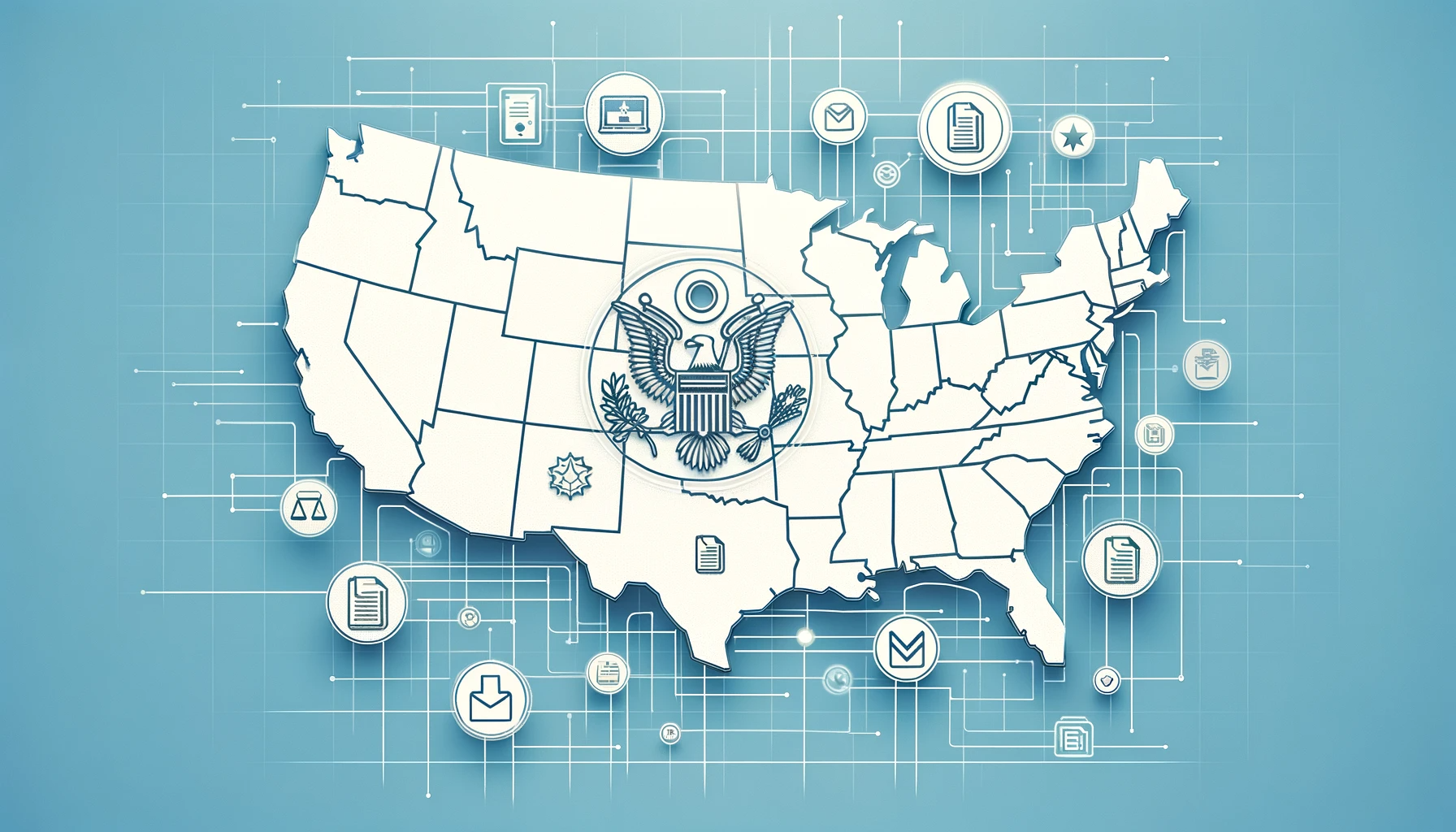More and more people want to become an online notary than ever before. If you are a resident of Illinois and are looking for a high-paying job that does not come stress, it is the best option for you. It is quite easy to earn around $50,000 when you work as an online notary. In fact, many of our notaries at Blue Notary manage to earn as much as $100,000. To help you become an online notary in Illinois, we have prepared the ultimate post. It covers everything that you need to know.
If you are already a notary public, you would benefit from an easier process as you would not need to first obtain a state license. Forget about having to meet with people in person. Instead, everything would be done online. The reason why online notary services have become incredibly popular is because of the coronavirus pandemic. It led to state governments passing laws to permit remote online notarization. If you have not become an online notary yet, you are missing out. As more people and businesses are opting for an online notarization, an online notary can expect a stable future.

Why Should You Consider Becoming An Online Notary In Illinois?
Before we cover how you can become an online notary in Illinois, it is important that you have an idea about what the job brings to the table. Similar to how bill-paying, shopping, and banking have gone online, notarization has also digitalized. Here are some of the reasons why you should consider becoming an online notary with Blue Notary.
- $25 per notarization 100% payout (Starting July 1, 2022)
- Add custom fees if you wish
- Little to no expenses
- Flexible hours
- Opportunities to take clients sourced by BlueNotary
In fact, it is only a matter of time until in-person notarization becomes a thing of the past. This is why it makes perfect sense to work online.
Are Online Notaries Legal To Work?
In many states, online notaries are permitted to work such as Virginia, Nebraska, Texas, Michigan, Nevada, Tennessee, Minnesota, Florida, Montana, North Dakota, Ohio, Oklahoma, Idaho, South Dakota, and Kentucky.
What to Expect From the Job?
Online notaries have to work with clients who do not want to visit a notary in person as they prefer an online service. You will have to verify the client’s identity and ask relevant questions relating to the documents that they want to notarize. You will have to use the online notary platform provided by Blue Notary to have a video conference with the client and be a witness to the signatures before you notarize the documents. After you complete the notarization, your client should be able to download the documents and save them. Expect to work on acknowledgements, depositions, oaths, written testimonies, and the like. If you want to become an online notary, you can check the guidelines set out by the state government to ensure that you meet them.
What Do You Need To Become An Online Notary?
The general requirements that you will have to meet include being over 18 years of age, having no felony convictions, and being a legal resident of Illinois. Here is a breakdown of what you can expect.
- You will have to complete an online application and submit the fee for processing your application. It will provide you with access to our courses so that you have an idea about what you will be required to do.
- To proceed, you will have to get a seal, a surety bond, and an Errors and Omissions policy. As the laws are always changing, it is crucial that you look up the state requirements.
- It is also necessary that you have the right technology for holding online sessions. A laptop or desktop computer, a microphone, a webcam, and an internet service are integral. You would also require an online storage system for storing all the notarizations. At Blue Notary, we will take care of this.
- A digital certificate would also be needed for the notary journal, signature, and electronic seal. All of these are provided for Blue Notary notaries.
How Much Can You Expect To Make?
When you create an account with Blue Notary to get started, you can expect to earn around $25 for online notarizations. As you gain more experience and have notarized more documents, you will be able to earn even more by taking on loan signing packages. Thus, you will be able to earn a very decent income – all from the comfort of your home office.
Do You Want To Become An Online Notary?
As an online notary, you get to decide which service provider to use for finding clients. Blue Notary is the best option as we make it super easy for you to onboard and start notarizing documents online. We have training videos and a signing simulator to get you comfortable with the process. You would be able to earn money with each document you notarize. There are no hidden charges that you need to worry about as we have a very straightforward policy.







